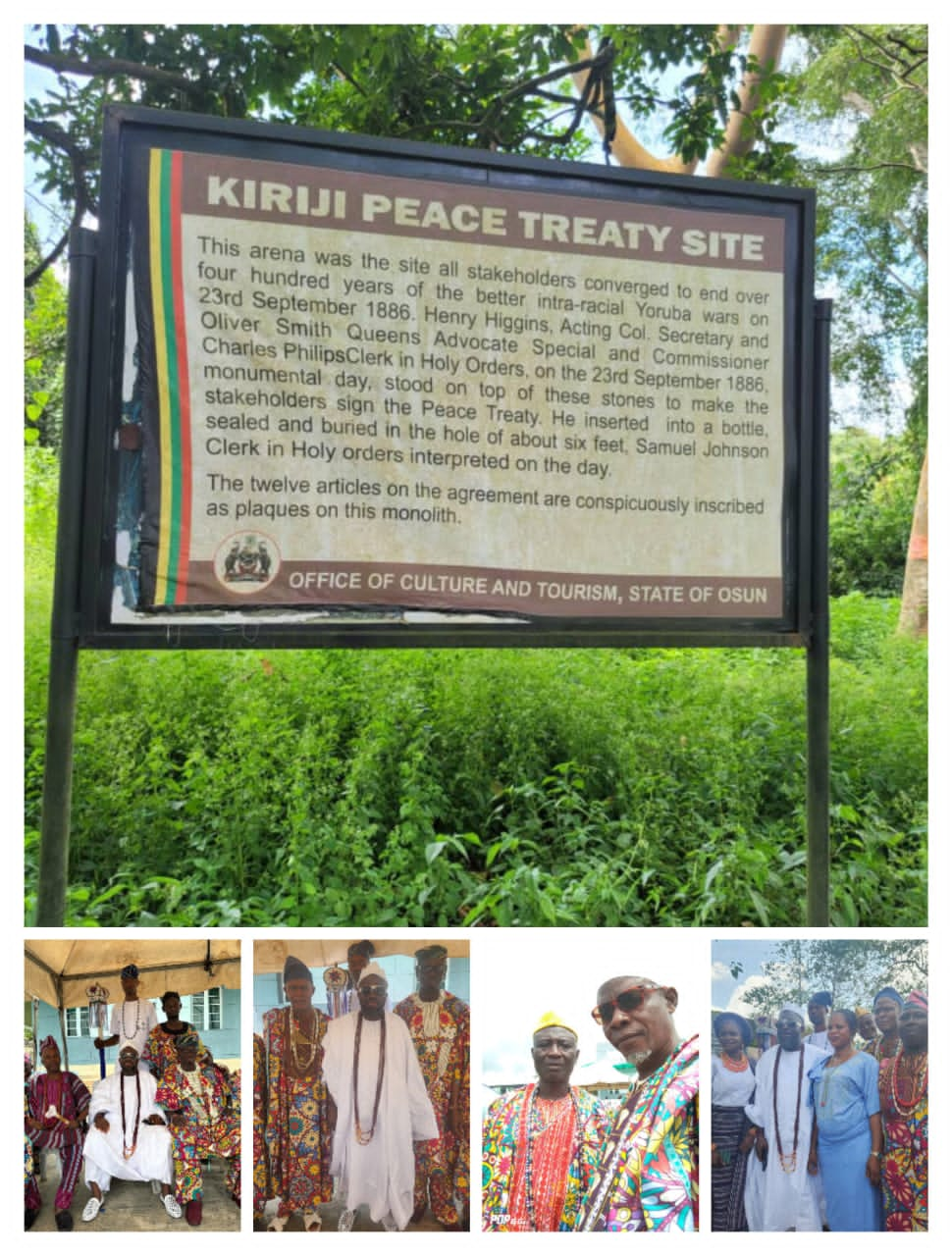Imesi Ile played host to dignitaries and stakeholders from across Yorubaland as they gathered to commemorate the 138th anniversary of the Kiriji/Yoruba Unity Day.
The 1886 Peace Treaty, signed on September 23, 1886, brought an end to the Kiriji War, a devastating conflict that ravaged Yorubaland for nearly two decades. The treaty marked the beginning of a new era of peace and unity among Yoruba kingdoms, paving the way for the region’s growth and development.
The event, held at the historic palace of Oowa Oye palace Square, Imesi Ile was attended by prominent figures including Mogaji Moshood Gbolagade Akere, representative of the Olubadan of Ibadanland; Mogaji Taofiq Akanni Mayeloye; Mogaji Ebolobi Raji; Mogaji Alemuloke; Oloye Adewale Ibikunle, President of Ibadan Warlords Families; Baale Abass Balogun Orowusi; and Prince Bello Babatunde Oyewumi Oluyedun, JP, PRO of Ibadan Warlords.
The anniversary celebrates the 1886 Peace Treaty, which brought an end to the Kiriji War and marked the beginning of a new era of peace and unity among Yoruba kingdoms.
Ibadan was jointly established by the Ife, Owu, Egbe, Ijebu, and Oyo kingdoms to defend against external threats. Reinforced by contingent forces from Ijesa, Otun, Ijero, and Ara kingdoms, this strategic alliance safeguarded Yoruba land from Fulani expansion.
The Ibadan Warlord Families recently visited 19 historic sites at the Kiriji battlefield, including:
- Ogedengbe’s stone-carved seat
- Ogun shrine
- Olose Meta Ogboni spot
- Ibu Latoosa
- Labinjo shooting range
- Proclamation spot
- Fejeboju Stream
- Faragbota tree
- Dump site
- Cave bunker
- Suspended lake
- Mass grave of warriors
- Adekayaoja’s spot
- Balogun Osejin rock
- Blacksmith spot
- Traditional priests’ spot
- Peace treaty signing site
- Defensive walls
These sites hold immense historical significance and tourism potential, offering opportunities for robust revenue generation. The National Commission for Museums and Monuments has been a valuable partner, erecting a pavilion at the Peace Treaty signing site in Imesi Ile.
Elebute Raphael Olamide, Chairman of the Culture and Tourism Committee, Imesi Ile Progressive Association, led the tour.
In his keynote address, Mogaji Moshood Gbolagade Akere emphasized the significance of the treaty, saying, “The 1886 Peace Treaty is the bedrock of Yoruba nationalism and unity. It has stood the test of time, and we continue to celebrate this milestone as a reminder of our shared heritage.”
Oloye Adewale Ibikunle added, added that “We honour the courage and foresight of our ancestors who worked tirelessly to establish peace and unity among our people. The event featured cultural performances, traditional rites, and a renewal of commitment to the principles of unity and cooperation.
Prince Bello Babatunde Oyewumi Oluyedun noted, “As we celebrate this anniversary, we reaffirm our dedication to the values of peace, tolerance, and mutual understanding that have defined our people for generations.”
Other notable attendees included Mogaji Osundina, representative of the families; Mogaji Awanibaku Elenpe, representative of Alfa Dauda; and representatives from various Ibadan warlords’ families.
The Kiriji/Yoruba Unity Day anniversary serves as a powerful reminder of the strength and resilience of the Yoruba people and their commitment to unity and progress.

